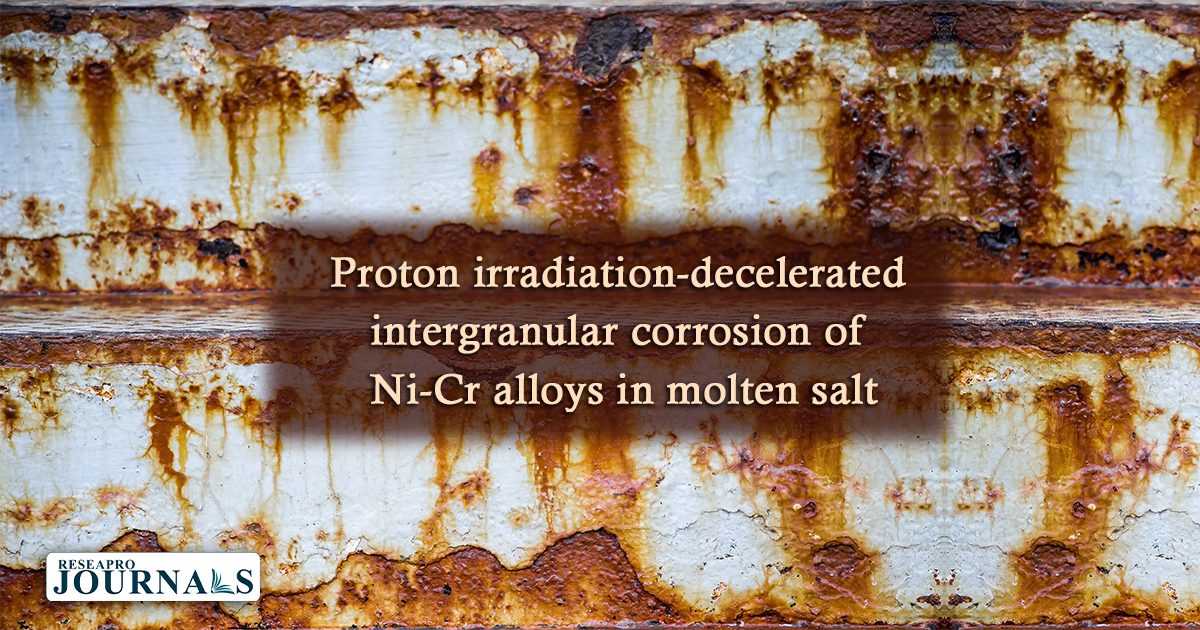Usually, when materials are exposed to ionizing radiation, it tends to have harmful effects, such as making them more brittle, causing them to deform faster, destabilizing their structure, and promoting corrosion. However, a recent study found something different. When certain nickel-chromium (Ni-Cr) alloys were exposed to proton irradiation in molten fluoride salt at a high temperature (650°C), the corrosion between grains in the material actually slowed down.




